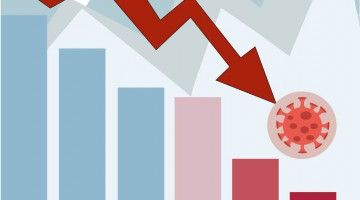COVID-19
COVID-19 was declared a global pandemic by the World Health Organization on March 11, 2020. In short order, the world of work changed dramatically in Canada. Non-essential businesses were locked down. Some workers lost their jobs; others were sent home to work. Despite protections, workers in sectors ranging from health care to transportation to food production and retail faced risk of infection, illness and even death. IWH research examines the impact of the pandemic on workers and workplaces, as well as the lessons for work and health policy-makers to prepare for the next pandemic.
Featured

Research Highlights
Mental health of Canadians who work from home no better or worse than those working outside the home
Canadian adults who work from home report the same levels of mental health, life satisfaction and stress as those who work on-site at a workplace, or at no fixed location (on the road). That’s according to a study of survey data from almost 25,000 Canadians in 2022.
Published: October 8, 2025

IWH Speaker Series
Refining estimates of occupational exposures and risk of workplace COVID-19 transmission
Published: January 16, 2024

At Work article
What research can do: How IWH research is responding to COVID-19
COVID-19 affects the work and health of people in Canada and around the world in vastly different ways. Research on the experiences of workers, and the effects of the pandemic on their health, is essential. Here's how IWH researchers are responding.
Published: May 2020

IWH in the media
COVID-19: One more reason to take mental health seriously
Many who work in the construction industry have direct experience of how important it is to support and understand mental health. Fortunately, the industry has recognized this problem and is working on solutions, writes Milwaukee consultant Bruce Morton in a column that cites Institute for Work & Health research on levels of depression following a work injury.
Published: The Daily Reporter, April 2020